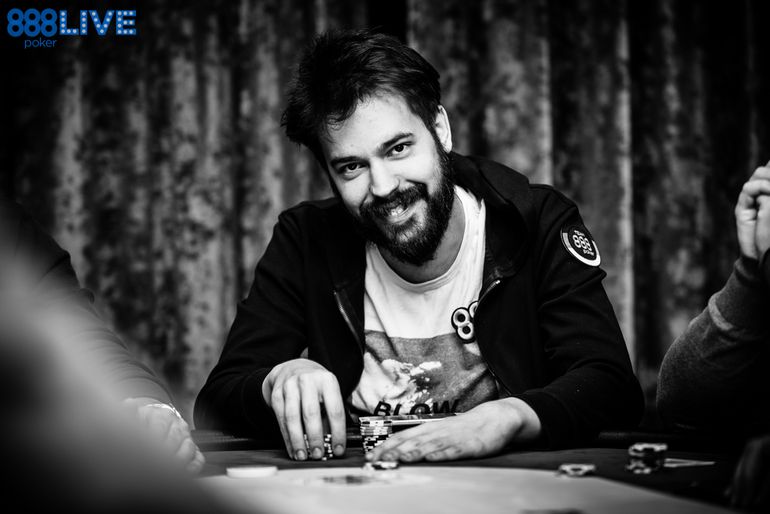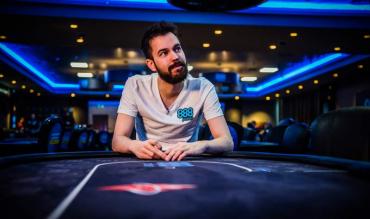Every poker player, on some level, wants to get better. On average, the better our decisions, the more money we are going to make in the long run.
Improving at the game is not always easy. Many players struggle for years and may feel as if they are making relatively little progress.
Here are some of my tips for becoming a better poker player faster.
1. Always Ask Why
There are lots of ideas floating around in the poker world. Some of them are true, some of them don’t have a basis.
Any time a player would introduce a new concept to me, I would get into the habit of asking the following question –
- ‘Can you prove it?’ or
- ‘Why is that good strategy advice?’.
If we can demonstrate proof for a concept, then we have made an upgrade to the quality of our decisions. If, instead, we get the answer ‘well, that’s just the way it is’, we definitely should be treating the idea with caution until we have some formal proof.
For example, it’s pretty much a given in the modern era that players should cold-call a wide range out of the big blind. This approach has been demonstrated through modern tools such as GTO solvers.
- But it wasn’t always that way.
Back in earlier days,most poker players believed the bigblind should be defended with a super tight range. We would be playing out-of-position postflop with a high frequency.
Some players challenged the notion and asked 'why?' rather than blindly following the trend. They began to realise that the bigblind should be defended wider before their opponents did, resulting in a higher winrate.
2. Work with Others
I have always felt that helping others is one of the more rewarding aspects of poker. A friend of mine had been struggling with poker for some time. I was able to help improve his skillset.
The end result was a significant tournament cash for hero. I honestly feel that the experience was more rewarding than watching my own bankroll grow.
Helping others is not entirely selfless, however.
- As we repeatedly explain and teach concepts to others, the rules of poker are solidified in our own minds.
- We begin to ask ourselves new questions about the game.
- We try and present poker strategy in the most concise and easily understandable format.
If there is someone you can reach out to and help in the poker community, it might end up being just as valuable for you as it is for them.
3. Get a Mentor
If I’m entirely honest, I’ve never personally found it valuable to work with a mentor. I learn best on my own.
Even thinking back to my school years, I found the classroom setting boring. I would always learn best on my own, outside of school.
So why am I recommending a mentor in this case? Because people learn in different ways.
While I have not personally benefited from a mentor, I’ve seen how mentoring has helped other players.
You might be one of those who learns best through this approach.
While this tactic might include hiring a private coach, this is not the only method.
Other options might involve:
- Forming a study group with stronger players.
- Signing up to a training site.
- Joining a staking stable.
Having said this, if this is not how you learn then, there is no reason to fight against that. Modern poker tools allow us to study and improve without the need for significant outside influence.

4. Devote Yourself
Poker is a demanding and complex game. It takes a lot of time and diligent effort to become one of the top players.
As a result, I am generally extremely careful with how I use my time and energy. I attribute a lot of my success to the fact that I don’t waste a lot of time with activities that are not contributing to me improving as a player.
Modern poker software has made it easier for players to learn the game to a high level. So, it’s more crucial than ever to stay on top of your own game.
I still consider myself to have an edge. But if I was inefficient with how I use my time, the field might begin to catch up.
5. Be Logical and Rational
When I look at the better players in the industry, I don’t see many who are overly emotional. For a cold, rational game like poker, cold rationality is what’s needed!
Too much emotion affects the logical parts of our brain and causes us to make suboptimal decisions. I have always considered myself more of a rational than an emotional person, which works well for a game like poker.
For those who are more prone to getting emotional and perhaps going on tilt, it’s essential to work specifically on this side of things. This strategy will help them to compete in challenging environments.
There are books, training videos and coaches all dedicated to improving the mental aspect of the game.
Final Thoughts
Winning or losing in any given poker tournament is going to be heavily affected by luck. All good players realise that you need a lucky run to take down a big tournament. We have no control over the luck aspect of poker.
- But we do have control over the skill aspect.
At the end of a tournament, if we can say that we played our best and made better decisions than our opponents on average, we should be satisfied.
So long as we continue to make better decisions than our opponents, we’ll eventually start to win as the luck evens out.
Our goals should always be -
- To bring our best game.
- Make our best decisions.
- Continue to work on improving as a player.


